A Brief History of 1965.
A Royal Tradition, On this Day, Taken Aback and Photo of the Week.
BOC#044
5 MINUTE MUNCH
TITLE PIECE: BRITAIN IN 1965…
1965 is often thought of as the year old Britain died, and a new, supersonic, Britain was born. It was the year the Concorde was being pieced together in Bristol, as the Ranger VIII robotic lunar probe was intentionally crash landed on the moon in search of new high resolution images of the Moon’s surface. But it wasn’t only technological progress that shook the nation, it was a year of significant social and cultural change too.
Albert Johanneson became the first black man to play in an FA Cup Final just months before the 1965 Race Relations Act was introduced in an attempt to prohibit racial discrimination in public places. Racism was rife in the 60s, so much so that prior to the game, the South African born Leeds United winger spent much of his time vomiting in the dressing room, only to be approached by somebody in the tunnel saying: “You’ve got no chance looking like you do. Our fans will murder you.” Johanneson pleaded with then manager, Don Revie, to be dropped, but he was refused. His performance was ultimately not enough as his side lost 2-1 to Liverpool. Johanneson would eventually see out his career at fourth division York City whom he joined in 1970.
1965 was a year of landmark shifts in legislation with the inauguration of drink-driving laws and the fixation of a new national speed limit. The limit was initiated as part of a four month trial instigated by several accidents caused by speeding in foggy conditions. The 30mph limit that’s being phased out of many residential areas today had already been in place since 1935.
As for drink driving? Well, it had been an offence to operate a horse and carriage under the influence of alcohol as far back as 1872 as per the Licensing Act of the same year. The act also prohibited firearm use and stream engine operation while intoxicated. But with faster roads and a series of failed drink driving campaigns, the 1965 Act was ultimately passed. It took a further two years for the roadside breathalyser to be introduced, and while the fixture of front seat belts became a legal requirement in 1965, their mandatory use wouldn’t come into force until 1983.
1965 was the year that the Kray twins were arrested for their involvement in the running of a protection racket in London, and the death penalty, too, was abolished. The last men to be hung were Peter Anthony Allen and Gwynne Owen Evans in 1964 following the murder of 53-year old John Alan West who they stabbed to death at his Cumbria home.
Cigarette advertisements were also being banned from national television as Kenneth Tynan exercised his right to use the word ‘fuck’ for the first time during a live broadcast; an act that resulted in a formal apology by the BBC, and inspired the Christian morality campaigner Mary Whitehouse to write that he “ought to have his bottom smacked.”
But all of this was to unfold in the shadow of a mourning nation.
A mere three weeks into the new year, Britain’s most cherished icon, Winston Churchill, died. The former Prime Minister became the first non-royal to receive a state funeral since William Gladstone in 1898. As a matter of fact, Churchill was towed in the very same naval gun carriage that had been used for Queen Victoria, ushered by sailors instead of horses, a tradition that harkens back Victoria’s 1901 funeral (more on this later). Prior to Churchill’s St. Paul’s farewell ceremony, his catafalque lay at Westminster hall where it was visited by some 300,000 people; a true testament to national sentiment and reverence for the man who saved Britain from the wrath of Hitler.
The mid-sixties saw the nationwide creation of new motorways as more people ditched their bicycles in favour of roaring combustion engines. Between 1961 and 1965, there was a staggering 40% decline in cyclist miles as more people abandoned their saddles in favor of a more comfortable Ford Cortinas. To quote Marshall McLuhan, the car had ‘become an article of dress without which we feel uncertain, unclad and incomplete in the urban compound.’ These urban compounds in which we buisied ourselves were beginning to cause disquietude, however. On 11th September 1965, The British Medical Journal expressed its concern for the collective hearing of the nation which was being impaired by the increasing ‘ambient noise in cities’ caused by the largest changes to our rural landscape since the introduction of the canal network and the industrial revolution.
While motorways tied the nation together, the landscape abroad was a little different.
With the war in Vietnam entering its tenth year, and nuclear escalation having been considered on more than one occasion by the Americans, a certain Harold Wilson rang U.S President L.B Johnson in the early hours of a cold February morning hoping to arrange a visit to Washington. Johnson’s response to the British Prime Minister was as snappy and frustrated as was the situation on the ground. ‘If you want to help us some in Vietnam’, he said, ‘send us some men.’ But in 1965, British troops were already stretched by their presence in Rhodesia and the Malaysian jungles of Borneo.
The year wasn’t all doom and gloom, however. The Beatles joined the Queen at Buckingham Palace in which they were honoured with MBEs just months after the release of their fifth studio album ‘Ticket to Ride’/‘Yes It Is,’ while Bob Dylan was touring the UK with the release of the longest single yet heard, ‘Like a Rolling Stone.’
1965 also saw Tomorrow’s world air for the first time on the BBC, becoming one of the longest running shows on the network. The inaugural episode featured new advances in kidney dialysis machines, a Dutch flood defence system and the Mariner 4 space probe’s search for life on Mars.
1965 was a year of change, modernity and most significantly, cultural evolution. Britain was stamping its technological and cultural footprint across the landscape of progress and popular culture. A great year to be alive? What do you think?
Leave a comment.
ON THIS DAY: 3rd NOVEMBER
In 1957, Laika the dog was shot into space aboard Soviet satellite Sputnik 2, making her the first animal to orbit Earth. She was sealed along with her fate in a cylindrical cabin with food, an air conditioner and several measuring devices.
The first Act of Supremacy was passed by the Parliament of England on this day in 1534, making Henry VIII and all subsequent monarchs the Supreme Head of the Church of England.
In 1903, in a move supported militarily by the U.S, Panama proclaimed its independence from Columbia. The new Panamanian government, led by Manuel Amador Guerrero, would go on to accept a canal treaty with the U.S.
Two French agents, Major Alain Mafart and Captain Dominique Prieur, pled guilty to the sinking of the Greenpeace Ship The Rainbow on this day in 1985. Read More Here.
PHRASE ORIGIN OF THE WEEK: ‘TAKEN ABACK’
The phrase to be “taken aback” is nautical in origin. ‘Aback’ refers to a sudden change in the wind such that a ship’s sails flatten against its mast. Such sudden changes in the wind would have slowed a ship down, or may have even driven it backwards. The correct maritime phrase used to describe a ship in such circumstances is ‘taken aback’.
Today we use it to suggest someone has been taken truly by surprise and stopped in their tracks.
PHOTO OF THE WEEK:
Following the New York Stock Market crash of 1929, an investor sells his Chrysler Imperial 75 Roadster for a fraction of the price. While the photo may have been staged, it nonetheless tells the story of one of the biggest crises in U.S financial history.
The financial crash was the final straw that triggered the Great Depression of the 1930s.
DID YOU KNOW?
The Royal Navy gun carriage that has carried the coffin of Churchill, as well as the last five monarchs including Queen Victoria, Edward VII, George V, and George VI, and most recently, Queen Elizabeth II, is a tradition that began following an incident at the funeral of Queen Victoria in 1901. During Victoria’s funeral, the cold horses were spooked, leaving the Royal Navy sailors with the task of commandeering the regal carriage for the remainder of the procession. The tradition has remained ever since.
MISSED LAST WEEK? READ: THE WEALTHIEST BLACK MAN IN PHILADELPHIA



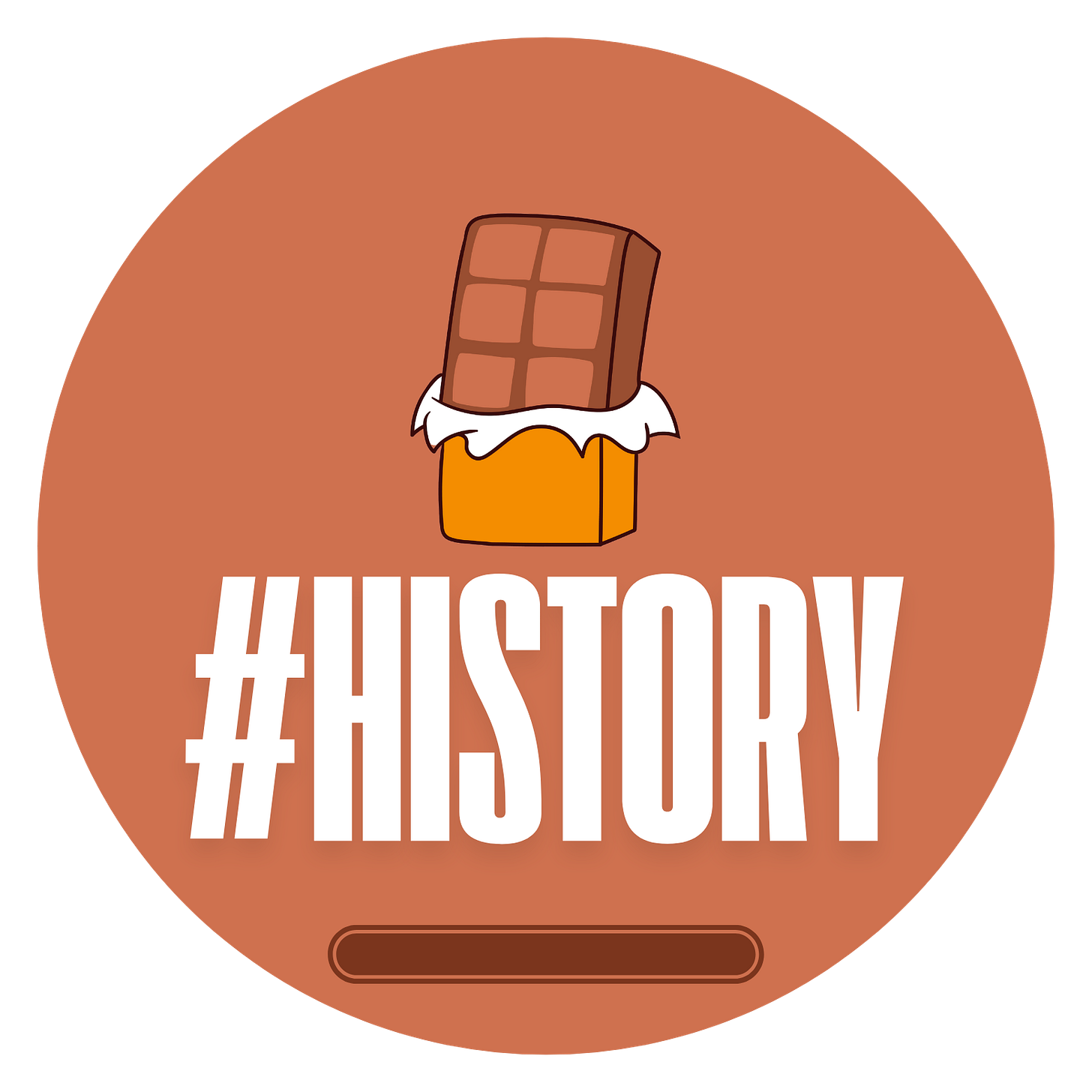
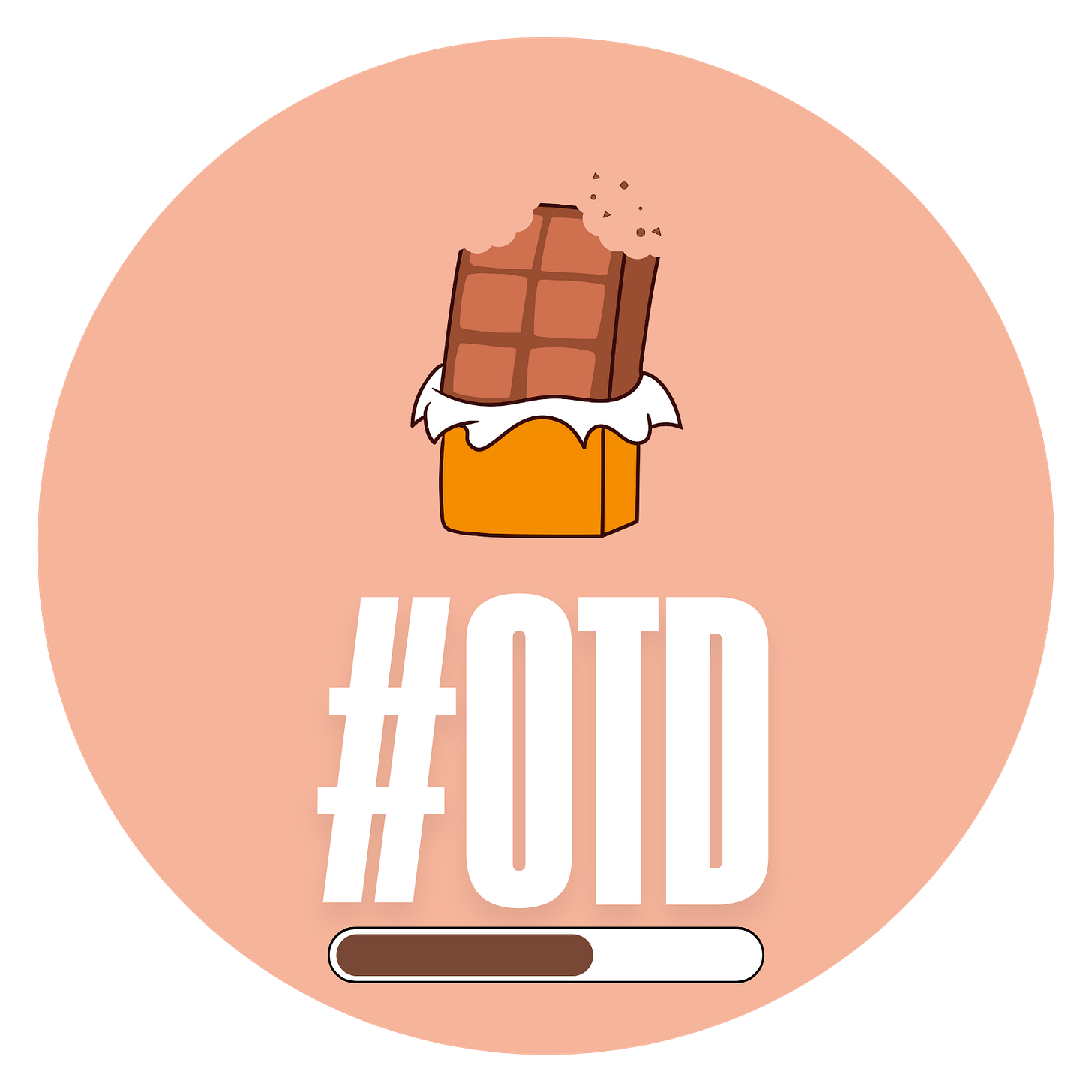
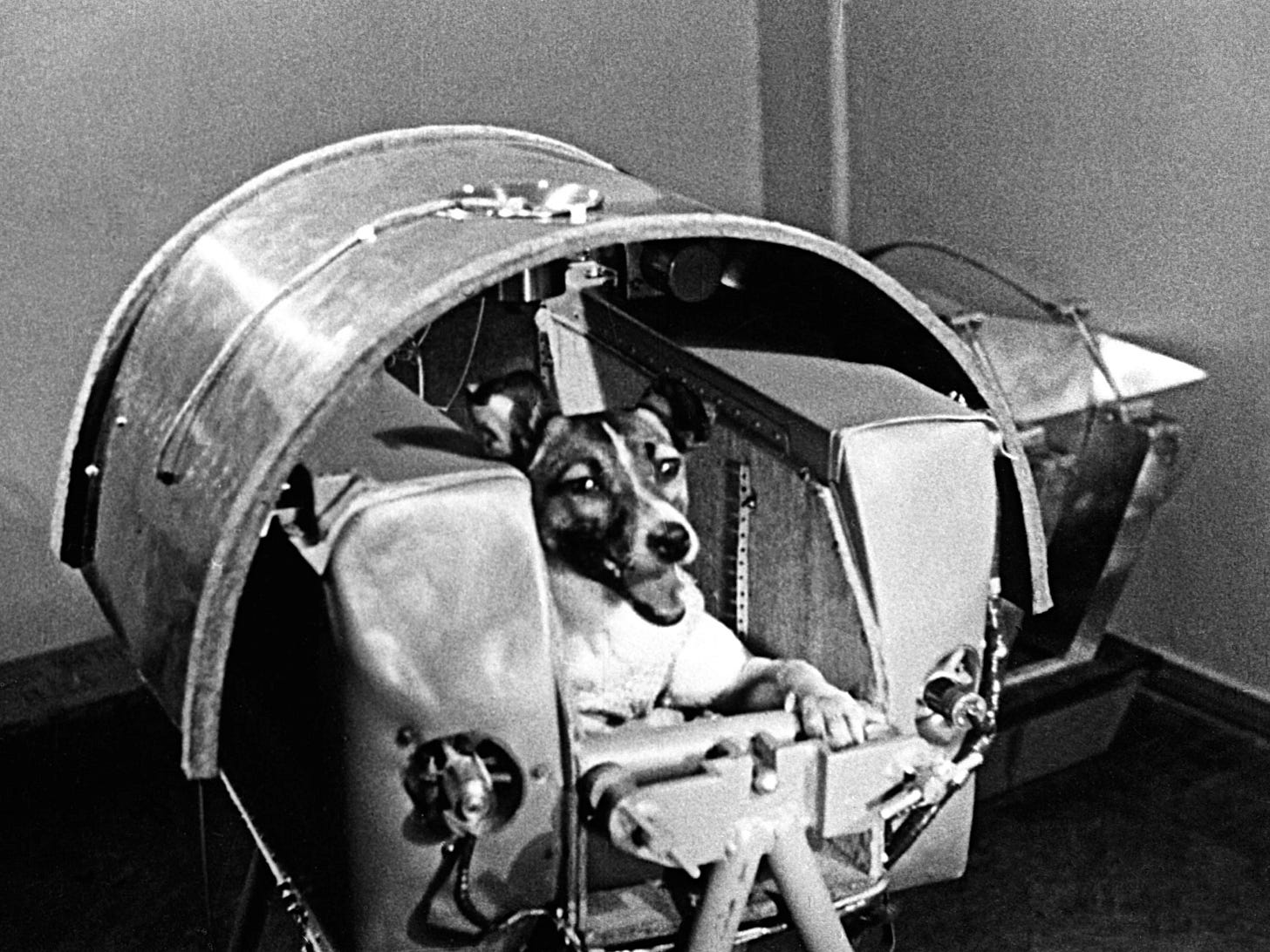
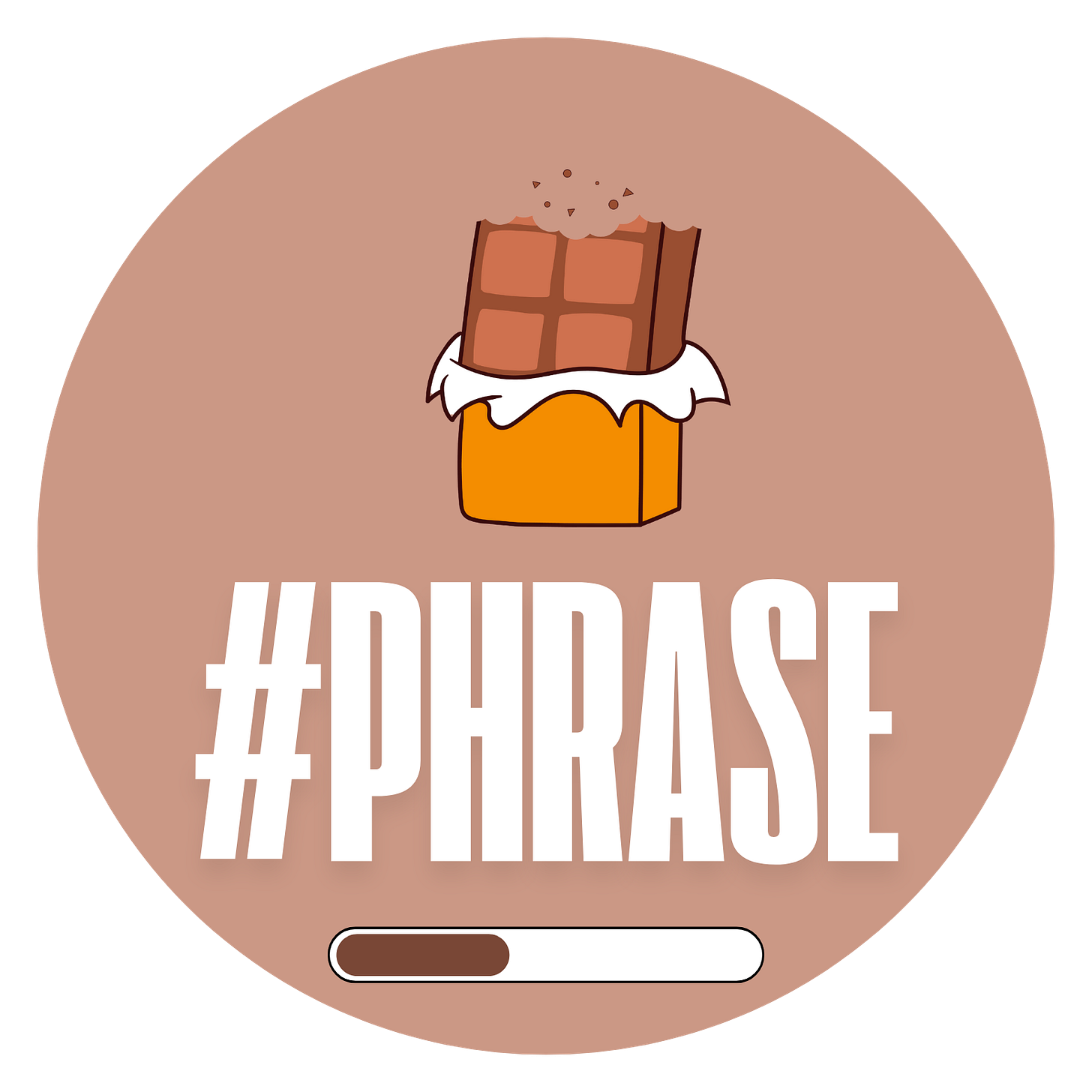


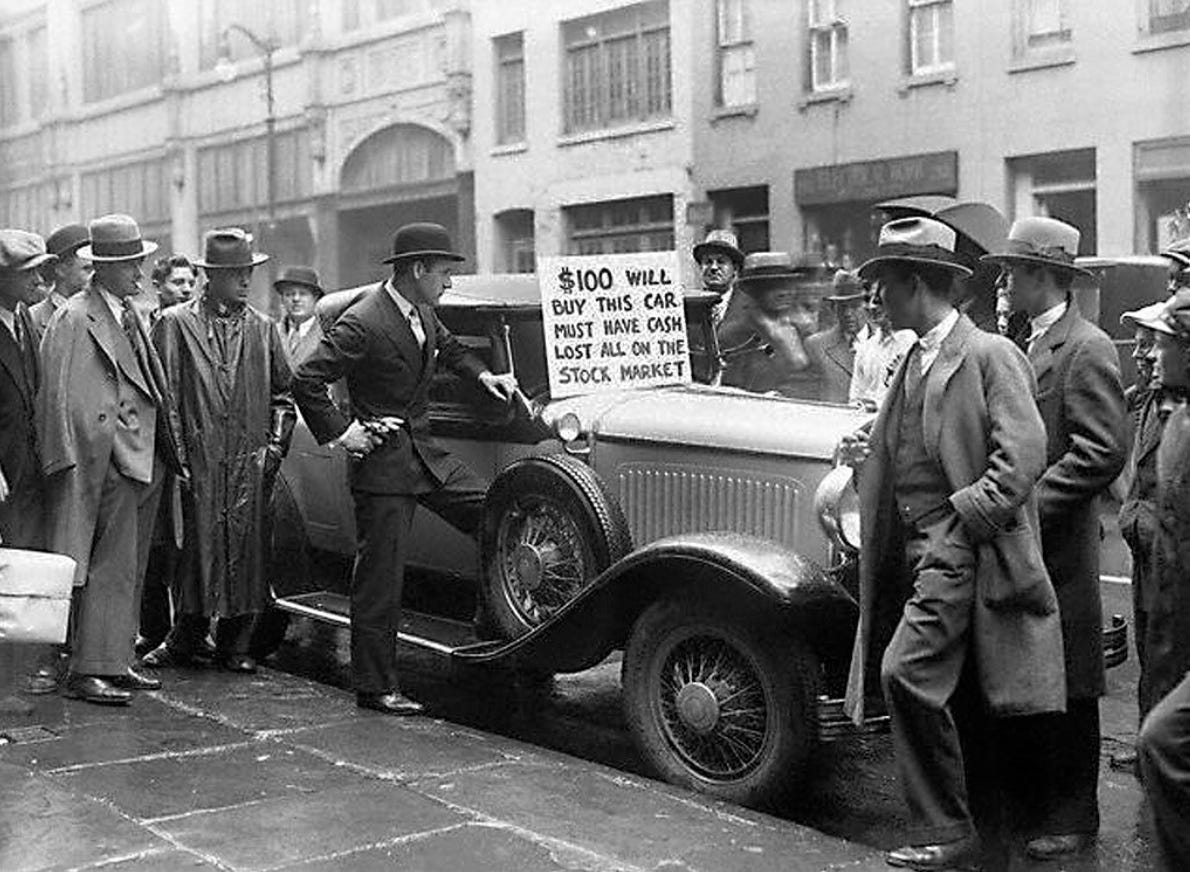


Great piece and I reckon 1965 was a good year to live through given I turned nine years old that year 😉 The year my sister joined the Army and my father became a Mortician in Sunderland Royal Infirmary having retired from the Fire Service the year before (back then firefighters had to retire at 55). I recall listening to Churchill's funeral on the radio (we didn't have a TV) although my parents weren't that fussed. He wasn't generally acclaimed in the northeast given his reaction to the coalminers and their attempts to improve conditions and pay by sending in troops when he was Home Secretary. In fact my mother recalled him being booed when he visited the northeast ammunition factory where she worked during the Second World War.